Live Review: Three French Operas Meet Free Fall Baltimore (2009.10.19)
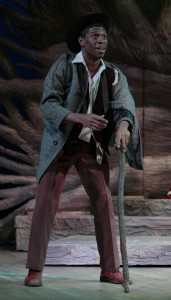 The first up, Jean-Philippe Rameau’s Adonis took us as close as you can get to an evening in Versailles without the price tag. My friend and I scored the last two tickets to be had. This free-for-all packed the house as part of Peabody Opera’s tie-in with Free Fall Baltimore.
The first up, Jean-Philippe Rameau’s Adonis took us as close as you can get to an evening in Versailles without the price tag. My friend and I scored the last two tickets to be had. This free-for-all packed the house as part of Peabody Opera’s tie-in with Free Fall Baltimore.
My main beef with Rameau wasn’t the music, but the dulled-down story that was rather stiffly acted by the singers and dancers of Peabody Opera and Peabody Preparatory. When dealing with jealous goddesses and ancient Greek tales, I guess any old goddesses will do. Rameau’s opera pits lusty Venus against chaste Diane. And Adonis, as portrayed by Benjamin Shaver, comes across as an abstemious disciple of the huntress who suddenly discovers he’s got sex organs (or as he sings to Venus: “You gave me a heart to love with”). His vocal range fared better than the flimsy part he was given.
The “actual” Adonis, according to Baltimore’s own mythology maven Edith Hamilton (going along with Ovid), sprung forth from Myrrha, who seduced her own father by trickery and then fled his wrath. Venus, taking pittance turned her into the fragrant gum tree. When father’s arrow pierced the trunk, Adonis sprang out.
That would make a far more fantastic opera, don’t you think? But the story goes on: Venus “abducts” the babe and takes him down to the Underworld in a chest so that no other gods or goddesses my look upon him. But goddess of the Underworld, Proserpine peeks. The comely Adonis equally enchants her. So, by order of Zeus, each gets to have Adonis for a portion of the year. Call it joint custody. And all goes swimmingly until Diane gets mad and sends a boar after his arse… or else, Venus’ sometimes lover, Mars gets jealous and dispatches the rival.
But such a plot would not do for Jean-Philippe and the French court. Boars are to be hunted by King Louis XV, not brought into the palace. L’Amour must reign triumphant, with all garland-bedecked and singing in unison of love.
The opera orchestra, under the conducting of Adam Pearl, was not without flaws. One of the violins seemed a little overcome and almost wheezy. However, I’d welcome every possible chance to hear more Rameau, especially since the revival of his music has only heated up since the 20th century.
Going forward a few years, vaulted into the contemporary life of 1759 but loosely dressed to seem present day, singers deliver the chansons of The Drunk Reformed. This Parisian love-comedy, reformed for Vienna audiences by composer Christoph Willibald von Gluck, gave the evening a good-natured tarnish of living in a Baroque painting by Franz Hals. Rolling and ridiculous arias build toward a trick-filled ending that does involve the Underworld we needed above. The Drunk is tricked into thinking he has died. His wife and niece play the Furies, shrouded in black veil. Consider the scene to be a funhouse mirror of the ending scene of Mozart’s Don Giovanni (which was, in fact, the later composition, originally called The Reprobate Punished). In Gluck’s work, the niece’s true love dons mask to play the punisher. In Don Giovanni, we have unbidden entrance of a massive stone statue, who condemns the rake to the fiery pit.
The spousal abuse theme grew stronger as the evening progressed. First, Love turns you into a tree. Second, Love marries you to a drunk (or tries to). Third, Love ends up getting you a spouse (or maybe even two) who “punish in proportion to their love.” Rita, by Donizetti, turns the usual romantic comedy plot on its head: two men fight to NOT win the woman.
The story opens with Rita’s first aria, sung by vixen-in-red Solen Mainguené. She was the first soprano whose voice dared test the reach of the outer audience and the balcony… thus the first to get performance-interrupting applause. Peabody Opera was holding it all back for the third opera. The night’s two piano accompanists, Ta-Wei Tsai (for Gluck) and John Wilson, gave the sprightly verve to back the singers well and up the energy in the hall.
Excellently timed slapstick ruled Rita’s stage — like devilish embraces Husband No.1 uses to grasp at the marriage contract tucked next to his wife’s breast. Good character acting couched uneven French pronunciation. Peppe, Rita’s Husband No. 2, seeing he “lost” his wife to her original spouse, executed a deft mid-air leap of which the Peabody Prep nymphs in the first opera should be jealous. Curtis Bannister’s clowning will take him far. Here the real fire of operatic joys began to catch. The crowded hall left happy. Would not say that I heard a true leading-man among the bunch, but heck, these are college kids! And it’s a free performance!
In case my mythological detour whetted your appetite: there is in fact a Myrrha – for three sopranos and a male choir. Composer Kristin Kuster debuted the work at Carnegie Hall back in 2006. The New York Times’ Allan Kozinn said Kuster’s choral writing “has an invitingly tart edge.”
Audio clip: Adobe Flash Player (version 9 or above) is required to play this audio clip. Download the latest version here. You also need to have JavaScript enabled in your browser.
MP3: Kristin Kuster – Excerpt from Myrrha (2006)
Related posts
- Live Review: Baltimore Rock Opera Society presents Gründlehämmer @ 2640 Space (2009.10.03)Editor’s note: This is a long overdue report from the...
- Live Review: Alfred Hitchcock’s Psycho Hijacks Baltimore Symphony (2009.07.10)Who knew the word “transvestite” would be uttered aloud in...
- Live Review: Breathless Whirl of the Baltimore Waltz – Ravel @ the BSO (2009.01.15)The BSO, under the baton of visiting French conductor, Stéphane...
- News: Virgin Mobile Fest 2009, free.[Audio clip: view full post to listen] MP3: Blink-182 –...
- Album Review: Animal Collective – Fall Be Kind (Domino)How can Animal Collective follow up on Merriweather Post Pavilion, and...





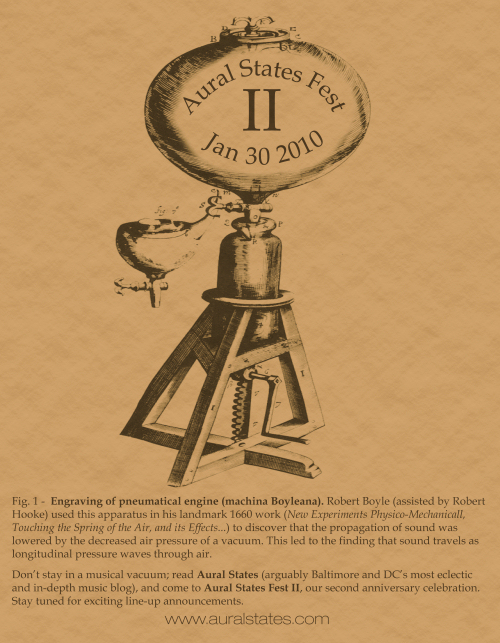











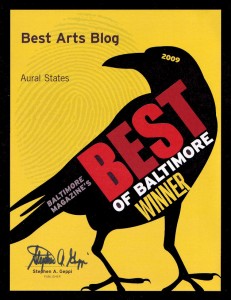


 Double Dagger: Masks EP
Double Dagger: Masks EP Pfisters: Narcicity
Pfisters: Narcicity Lizz King: All Songs Go To Heaven
Lizz King: All Songs Go To Heaven Imperial China: Phosphenes
Imperial China: Phosphenes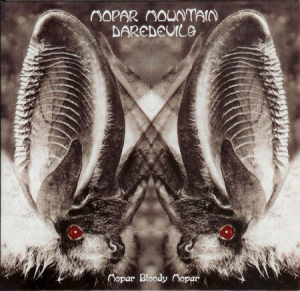 Mopar Mountain Daredevils: Mopar Bloody Mopar
Mopar Mountain Daredevils: Mopar Bloody Mopar Lonnie Walker: These Times, Old Times
Lonnie Walker: These Times, Old Times Built to Spill: There Is No Enemy
Built to Spill: There Is No Enemy Hypnotic Brass Ensemble: Hypnotic Brass Ensemble
Hypnotic Brass Ensemble: Hypnotic Brass Ensemble Secret Mountains: Kaddish EP
Secret Mountains: Kaddish EP Bela Fleck: Throw Down Your Heart: Tales From the Acoustic Planet, Vol. 3 -Africa Sessions
Bela Fleck: Throw Down Your Heart: Tales From the Acoustic Planet, Vol. 3 -Africa Sessions Lands & Peoples: Lands & Peoples EP
Lands & Peoples: Lands & Peoples EP Caleb Stine: Eyes So Strong and Clean
Caleb Stine: Eyes So Strong and Clean Wye Oak: The Knot
Wye Oak: The Knot Pontiak: Maker
Pontiak: Maker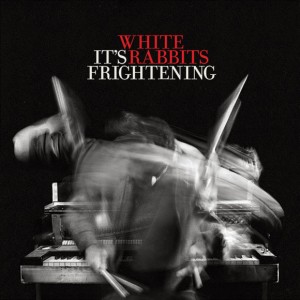 White Rabbits: It's Frightening
White Rabbits: It's Frightening Dirty Projectors: Bitte Orca
Dirty Projectors: Bitte Orca Double Dagger: More
Double Dagger: More Elvis Perkins in Dearland: Elvis Perkins in Dearland
Elvis Perkins in Dearland: Elvis Perkins in Dearland Dan Deacon: Bromst
Dan Deacon: Bromst The Thermals: Now We Can See
The Thermals: Now We Can See Soft Cement: Think About It EP
Soft Cement: Think About It EP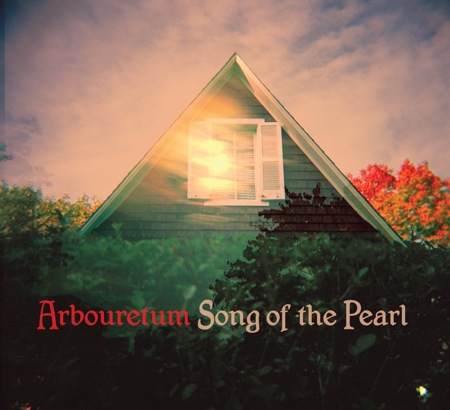 Arbouretum: Song of the Pearl
Arbouretum: Song of the Pearl The Pains of Being Pure at Heart: The Pains of Being Pure at Heart
The Pains of Being Pure at Heart: The Pains of Being Pure at Heart Benjy Ferree: Come Back to the Five and Dime, Bobby Dee Bobby Dee
Benjy Ferree: Come Back to the Five and Dime, Bobby Dee Bobby Dee Weekends: Weekends
Weekends: Weekends Height With Friends: Baltimore Highlands 12" LP, Limited-Run Vinyl Only
Height With Friends: Baltimore Highlands 12" LP, Limited-Run Vinyl Only Caverns: Kittens! EP
Caverns: Kittens! EP Little Joy: Little Joy
Little Joy: Little Joy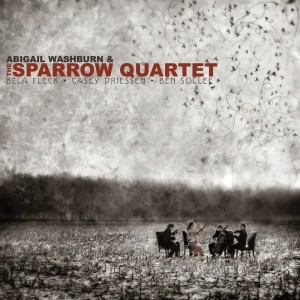 Abigail Washburn & the Sparrow Quartet:Abigail Washburn & the Sparrow Quartet
Abigail Washburn & the Sparrow Quartet:Abigail Washburn & the Sparrow Quartet The Secret Machines: Secret Machines
The Secret Machines: Secret Machines The Bug: LondonZoo
The Bug: LondonZoo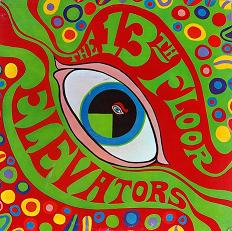 13th Floor Elevators: Psychedelic Sounds of the 13th Floor Elevators (Vinyl Mono LP only)
13th Floor Elevators: Psychedelic Sounds of the 13th Floor Elevators (Vinyl Mono LP only) Arbouretum/Pontiak: Kale (Vinyl LP only)
Arbouretum/Pontiak: Kale (Vinyl LP only) Small Sur: We Live in Houses Made of Wood
Small Sur: We Live in Houses Made of Wood AbeVigoda: Skeleton
AbeVigoda: Skeleton ImperialChina: Methods: EP
ImperialChina: Methods: EP
Thanks for pointing out that Hamilton and her myths are ours.